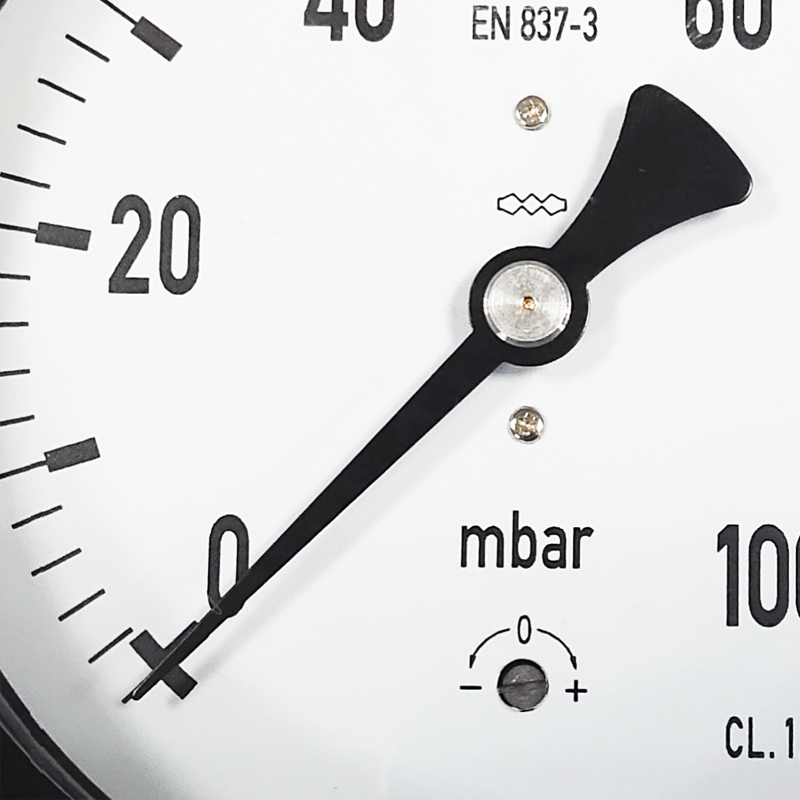
Oct . 10, 2024 14:06 Back to list
differential pressure gauge hydraulic factory
Understanding Differential Pressure Gauge in Hydraulic Systems
In the realm of fluid dynamics and hydraulic systems, precision measurement plays a critical role in system performance and safety. One of the key instruments used for this purpose is the differential pressure gauge. This article will delve into the significance, working principle, and applications of differential pressure gauges in hydraulic systems, particularly in factory settings.
What is a Differential Pressure Gauge?
A differential pressure gauge is an instrument designed to measure the difference in pressure between two points in a hydraulic system. Unlike a standard pressure gauge that measures pressure relative to atmospheric pressure, a differential pressure gauge displays the difference between two defined pressure points. This measurement is crucial for understanding the flow dynamics within a system, troubleshooting issues, and maintaining efficiency.
Working Principle
The working principle of a differential pressure gauge is relatively straightforward. It consists of two pressure ports connected to the system, where each port is exposed to a different pressure. This pressure difference actuates the internal mechanism of the gauge, which translates the differential pressure into a readable value on the gauge’s dial or digital display.
The most common types of differential pressure gauges utilize diaphragm or bourdon tube mechanisms to detect pressure changes. In diaphragm-type gauges, a flexible membrane separates the two pressure inputs. As the pressure varies between the two sides, the diaphragm flexes, and this movement is converted into a readable output. In bourdon tube gauges, the pressure difference causes the tube to bend, and this bending is proportional to the differential pressure.
Applications in Hydraulic Systems
1. Filter Monitoring One of the primary applications of differential pressure gauges in hydraulic systems is filter monitoring. As fluid passes through a filter, contaminants accumulate over time, leading to an increase in pressure drop across the filter element. By installing a differential pressure gauge across the filter, operators can easily monitor the pressure differential, allowing them to determine when the filter needs cleaning or replacing. This proactive maintenance helps prevent system failures and prolongs equipment lifespan.
2. Pump Performance Monitoring Differential pressure gauges also play a vital role in assessing pump performance. By measuring the pressure before and after a pump, operators can calculate the efficiency of the pump system. A significant drop in pressure indicates a potential issue, such as wear within the pump or a blockage in the pipeline, prompting immediate investigation and maintenance.
differential pressure gauge hydraulic factory

3. Level Measurement In certain hydraulic applications, differential pressure gauges can be used to measure the level of fluids in tanks or vessels. By measuring the pressure at the bottom of a tank and knowing the density of the fluid, the gauge can provide accurate level readings. This application is particularly useful in industries such as pharmaceuticals, chemicals, and food processing, where maintaining specific fluid levels is critical.
4. Leak Detection Another crucial application of differential pressure gauges is in leak detection systems. By measuring the pressure difference in pipelines or tanks over time, operators can identify whether changes in pressure occur due to leaks. Early detection of leaks is essential for minimizing product loss and environmental impact in factory settings.
Advantages of Using Differential Pressure Gauges
- Enhanced Accuracy Differential pressure gauges provide more accurate readings compared to single-pressure gauges, especially in high-pressure environments.
- Proactive Maintenance By continuously monitoring pressure differentials, operators can identify potential issues before they escalate, reducing maintenance costs and downtime.
- Versatility These gauges can be used in a variety of applications, including HVAC systems, water treatment, and oil and gas industries, making them indispensable in many factories.
- Robust Designs Many differential pressure gauges are designed to withstand harsh environments, making them suitable for demanding industrial applications.
Conclusion
The differential pressure gauge is a vital instrument in hydraulic systems within factories, facilitating efficient operation through accurate pressure measurement. Whether it’s monitoring filters, assessing pump performance, measuring fluid levels, or detecting leaks, these gauges contribute to safer, more efficient industrial processes. As technology continues to advance, integrating smart sensors and digital displays with differential pressure gauges will further enhance their functionality, ensuring they remain crucial components in modern hydraulic systems.
-
High-Precision 5 Valve Manifold Differential Pressure Gauge Suppliers
NewsApr.29,2025
-
High-Precision Diaphragm Vacuum Pressure Gauges Manufacturers & Quotes
NewsApr.29,2025
-
Omega Differential Pressure Gauges High Accuracy & Durability
NewsApr.28,2025
-
Low Pressure Differential Pressure Gauges Precision Solutions & Quotes
NewsApr.28,2025
-
Digital Diaphragm Pressure Gaauge Precision Measurement & OEM Quotes
NewsApr.28,2025
-
Differential Pressure Gauge China Price High-Accuracy & Best Quotes
NewsApr.28,2025
